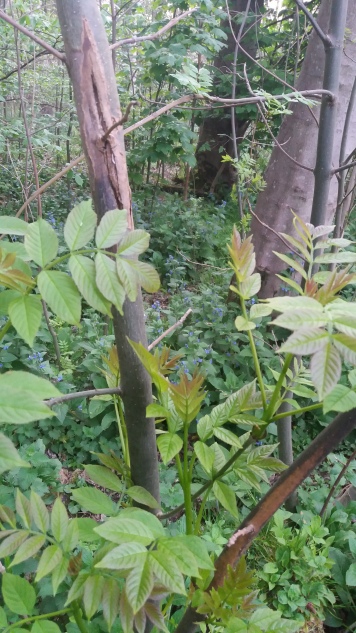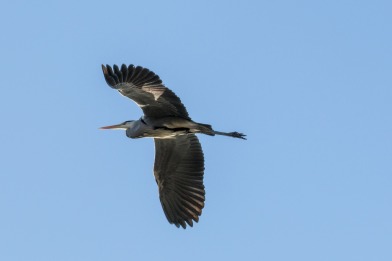
I knew something was up with MacInnes as soon as I shook his hand. He hadn’t been in my office for a few years. Time must’ve been ruthless with him. Deep gullies fell from the corners of his mouth making an exaggerated frown, and the majority of his hair was grey, the original red only a suggestion now, a souvenir. He looked exhausted, beaten.
His palm was sweaty as it met mine – anxiety, I guessed. I shake a lot of hands, so I know these things. To quote Tom Jones, it’s not unusual. The room was air-conditioned, but it was insane outside and he’d arrived late, flustered. My secretary had ushered him in immediately. He didn’t meet my eye as we shook, glancing down at our linked hands instead.
“Hello Leo,” he muttered.
I didn’t mind him using my first name. I’m cool with that. He’d started out as my boss, after all.
As soon as I relinquished the handshake – which always happens when I decide, not them – I sensed something was awry. I rubbed my fingers against my palm and felt something there, something damp and filmy. Although it was pretty uncool to do so, I examined it – it was a reflex, I guess – and saw that it was a layer of skin. His skin.
Freaked out but trying to retain my composure, I sat down, said nothing about it.
“Well, Paul, you’ve perhaps guessed what this is about,” I said instead. “There’s no easy way to approach it, I’m afraid. But then, you of all people know that.”
He slumped in the chair across the desk from me. Something fell from his head, bounced on his shoulder and slid down his upper arm before tumbling to the carpet. He turned his head to try and conceal it from me, but even though the desk obscured my view of where it had landed, I knew what I’d seen.
It was his left ear.
“Of course, Leo,” he said, putting his hand up towards the side of his head, trying to make out he was simply replacing a stray strand of hair, rather than stopping his glasses from falling off.
“I hope you won’t think I’m shitting you when I say it wasn’t my choice,” I continued, determined not to get distracted. “I’ve been getting squeezed by head office for months now. It’s just not…not happening here. Not the way they want. Not the way anyone wants.”
“No, no, of course. I understand, Leo.”
He crossed one leg over the other. As he did so, his lower leg came away at the knee – shoe and sock in place – and cartwheeled across the room, leaving an empty trouser leg dangling freely. The leg – his leg – came to rest over by the filing cabinet. Miraculously, it landed the right way up, shoe downwards, leaning against the bottom drawer. But for the ragged skin just below where the knee had been until a few seconds before, and the blood running down his shin, it could’ve been a prosthetic. Who knew he had such hairy legs?
Our eyes finally met. He said nothing, just uncrossed his leg – carefully – and cradled his head where his ear used to be.
“You’ll…er…you’ll get the standard package, Paul,” I said, peeling the extra layer of skin from my palm beneath the desk. My own hands had begun to dew with sweat.
He nodded, though only be a few degrees, like he was afraid what might happen if he was more vigorous.
“I tried to cut you a better deal, I promise you,” I lied. “What with all your loyalty to the company over the last – what is it? – twenty-five years?”
“Thirty-one,” he said.
“Human Resources just wouldn’t buy it,” I continued. “You know how things are. When it’s my turn, I’ll probably be lucky to get a thank-you.”
I thought he might at least smile at this, but he didn’t. Then I noticed a small crack beginning to open up in his forehead. It quickly grew, splitting his skull, following the centreline of his face, moving downwards. I could see shards of bone and brain flying off, then teeth pinging out of his jawbones.
“Paul?” I said. “Are you OK?”
His entire body was cleaving down the middle. Buttons flew from his shirt. Organs spilled from his torso as the skin opened, and flopped out – first into his lap and then between his legs and onto the carpet. I thought I recognised a liver, but then it could’ve easily been something else. His vertebral column parted like the teeth of a zipper.
He wasn’t going to answer. He wasn’t going to do anything at all. I could see why they were letting him go.
I stood up for a moment so that I could see beyond the desk. The right side of him had toppled forward and down to the floor, while the left had leaned over and was resting on the arm of the chair.
I picked up the phone, scrolling through the internal directory to find the cleaning department. They’d be really pleased. I was about to press the number but I stopped. “Priorities, Leo,” I said to myself.
I dialled H.R. instead. They weren’t paying me nearly enough for dealing with this type of shit.

 It had been a gift – and a thoughtful one – yet it perched on my bookshelf for the best part of a year, intimidating me. Donna Tartt’s “The Goldfinch” weighs in at 800-odd pages of reasonably small print, which is meaty by anyone’s reckoning, and I knew it wasn’t going to be tackled in a weekend. Tiny bird, enormous book. Like an ascent on Everest, or the running of a marathon, I would need to approach this in a resolute, professional manner, and arrive at the starting line with loins girded (whatever that actually means) and feeling seriously on my game.
It had been a gift – and a thoughtful one – yet it perched on my bookshelf for the best part of a year, intimidating me. Donna Tartt’s “The Goldfinch” weighs in at 800-odd pages of reasonably small print, which is meaty by anyone’s reckoning, and I knew it wasn’t going to be tackled in a weekend. Tiny bird, enormous book. Like an ascent on Everest, or the running of a marathon, I would need to approach this in a resolute, professional manner, and arrive at the starting line with loins girded (whatever that actually means) and feeling seriously on my game.
 The corner table in Starbucks had uneven legs and wobbled unpredictably. It made writing a challenge. My eyesight had become so poor I could barely make out the words as they escaped my pen and fled across the page.
The corner table in Starbucks had uneven legs and wobbled unpredictably. It made writing a challenge. My eyesight had become so poor I could barely make out the words as they escaped my pen and fled across the page.



 I don’t think any of any of us had ever thought about Vicky before. Not in that way, anyway. There were plenty of others to think about – Maria Fairley, Jacqui Sellars. Lisa Williams too, of course, although she mysteriously lost it at the end of seventh year. I don’t know where it went, but once it was lost, it never came back.
I don’t think any of any of us had ever thought about Vicky before. Not in that way, anyway. There were plenty of others to think about – Maria Fairley, Jacqui Sellars. Lisa Williams too, of course, although she mysteriously lost it at the end of seventh year. I don’t know where it went, but once it was lost, it never came back.
 I’m currently re-reading John Irving’s epic novel “Last Night in Twisted River”. Actually, I should qualify this – the previous ‘read’ was in audiobook form, a library-loaned stack of CDs that I fed eagerly into the car stereo on a road trip from Maryland to Maine and back, four years ago.
I’m currently re-reading John Irving’s epic novel “Last Night in Twisted River”. Actually, I should qualify this – the previous ‘read’ was in audiobook form, a library-loaned stack of CDs that I fed eagerly into the car stereo on a road trip from Maryland to Maine and back, four years ago. that the process of writing all of his novels has begun with the final sentence, both as a captured moment in time and a feeling. He works his way backwards from that point – ‘a kind of roadmap in reverse’ as he describes it – and until he has the ending nailed down as a reference point to work towards, he can’t begin.
that the process of writing all of his novels has begun with the final sentence, both as a captured moment in time and a feeling. He works his way backwards from that point – ‘a kind of roadmap in reverse’ as he describes it – and until he has the ending nailed down as a reference point to work towards, he can’t begin.
 “Let go,” Will said. “Let me go.”
“Let go,” Will said. “Let me go.” Marianne had taken the least expensive room. The place was visibly dying, crumbling with a lack of genuine love. She’d passed it often enough, wondered who the hell would stay in such a cattle pen. Now here she was standing in one of its windows, gazing down at her Subaru in the parking lot. There were three other cars, none of them worthy of extended attention. It was almost dark.
Marianne had taken the least expensive room. The place was visibly dying, crumbling with a lack of genuine love. She’d passed it often enough, wondered who the hell would stay in such a cattle pen. Now here she was standing in one of its windows, gazing down at her Subaru in the parking lot. There were three other cars, none of them worthy of extended attention. It was almost dark.